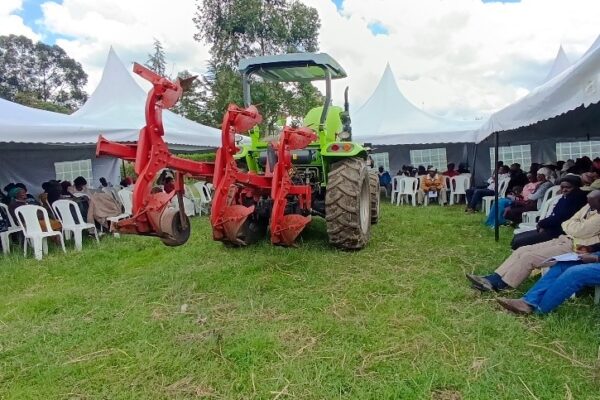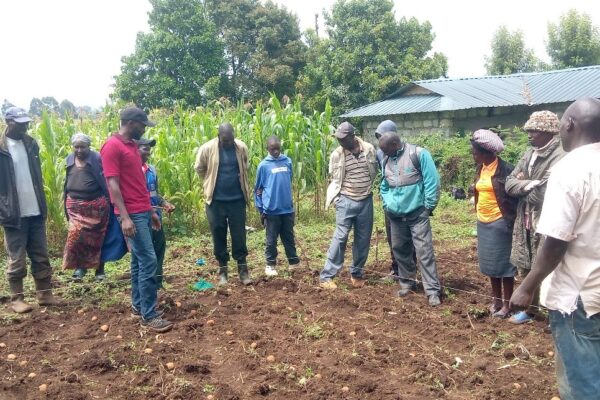MONITORING, EVALUATION, AND LEARNING UNDER THE KSPI PROJECT IN NANDI COUNTY, FARMER GROUPS VISITS AND COOPERATIVE, REGIONAL DEMO VISIT AND ESTABLISHMENT IN READINESS FOR PLANTING, PARTNERS PARTICIPATION AT THE DEMO SITE.
The Kenya Sustainable Potato Initiative (KSPI) continues to make significant progress in Nandi County through coordinated efforts in monitoring, evaluation, and learning (MEL). The project, implemented by the National Potato Council of Kenya (NPCK) in partnership with various stakeholders, aims to enhance potato productivity, strengthen farmer organizations, and promote sustainable market linkages. Recent field visits across the county have provided valuable insights into project outcomes, farmer adoption levels, and ongoing preparations for the upcoming Regional Potato Trade Fair and Exhibition to be hosted at the University of Eastern Africa, Baraton in December.
Monitoring and Learning Visits to Farmer Groups and Cooperatives
A series of monitoring and learning visits were conducted across the county to evaluate the progress made by farmer groups, community-based organizations (CBOs), baby demo plots, and cooperatives. The visits focused on assessing the adoption of good agricultural practices (GAPs), input use, and knowledge transfer among farmers trained under the KSPI project.
Field assessments revealed that most farmers have embraced key KSPI-promoted technologies, including certified seed potato use, soil testing, proper spacing, integrated pest management (IPM), and efficient fertilizer application techniques. Members of Lelngechek Potato Cooperative demonstrated commendable progress in collective marketing, record keeping, and seed multiplication, showing how organized groups can effectively scale up the impact of training and partner facilitated by NPCK and other partners.
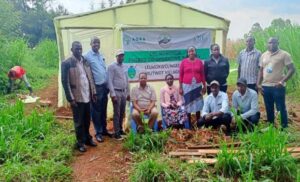
Baby Demos and Learning Platforms
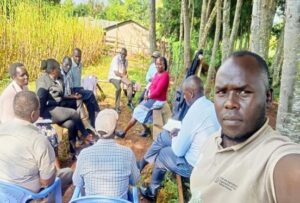
Baby Demos and Learning Platforms
The baby demo plots established across wards continue to serve as vital learning centers for farmers. These plots provide practical, hands-on demonstrations of improved agronomic practices and the performance of different seed varieties and inputs. Farmers attending the demos reported increased awareness and confidence in adopting climate-smart practices, efficient pest control methods, and post-harvest handling skills.
Through regular monitoring and reflection sessions, partners and field officers have captured critical lessons that are feeding back into project planning and implementation. The participatory learning model has strengthened collaboration among stakeholders while ensuring that farmers remain at the center of innovation and change.
Partnerships and Collaborative Demonstrations
To enhance technology dissemination, the KSPI project has partnered with key agricultural and research institutions, including Egerton University, University of Eldoret, and the University of Eastern Africa Baraton, to establish joint demonstration plots. These plots showcase integrated potato production systems and offer platforms for student engagement, farmer training, and applied research.
Private sector players have also been instrumental in supporting the initiative. Agrochemical and input companies such as Twiga Chemical Industries, SMS, Bayer, Syngenta, Murphy Chemical, Growmate, Kevian, and IPM, alongside FIPS Africa, have collaborated in setting up and managing demo farms. These demonstration plots highlight innovative products and sustainable practices that enhance potato yields, pest control, and soil fertility management.
Preparations for the Regional Potato Trade Fair and Exhibition
In preparation for the Regional Potato Trade Fair and Exhibition scheduled for December 2025 at the University of Eastern Africa, Baraton, partners are actively engaging in setting up demonstration plots and exhibitions. These demos are intended to showcase integrated value chain approaches, from seed production to post-harvest handling and marketing.
The event will bring together farmers, cooperatives, researchers, agribusiness companies, and county governments to exchange knowledge, innovations, and market opportunities in the potato sector. It will also serve as a learning and networking hub, strengthening regional collaboration and showcasing Nandi County’s leadership in sustainable potato production.
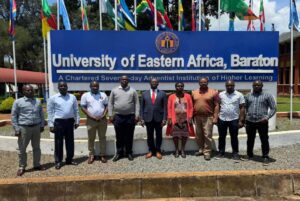
The ongoing monitoring, evaluation, and learning activities under the KSPI project demonstrate tangible progress toward improved potato productivity and farmer empowerment in Nandi County. The strong partnerships among farmer groups, cooperatives, universities, and private sector stakeholders underscore the project’s holistic approach to agricultural transformation.
As preparations for the regional trade fair advance, the KSPI project continues to build momentum — translating lessons learned into action, fostering innovation, and promoting sustainability across the potato value chain.



